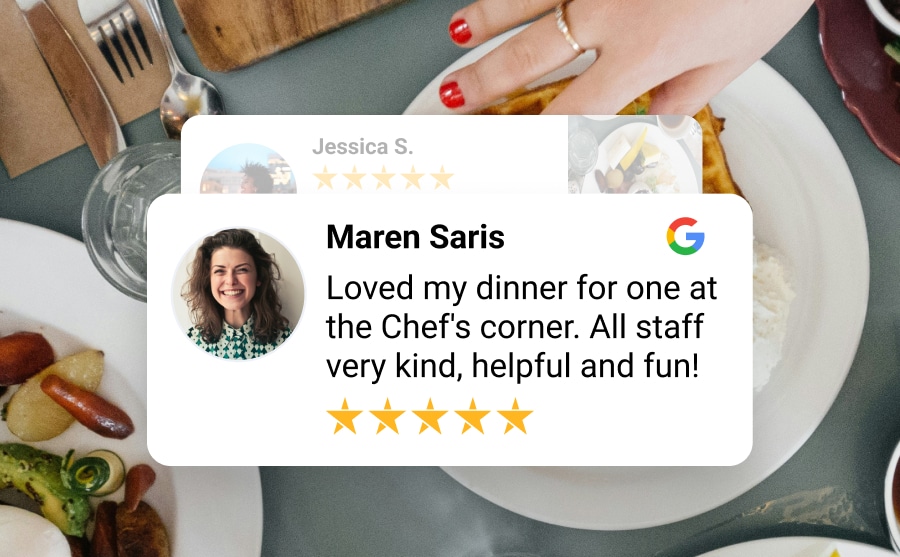The Rise of Plant-Based: What Social Data Reveals About F&B Preferences

Summary
The rise of plant-based eating isn’t just a dietary trend—it’s a data-driven revolution transforming how the food and beverage industry understands its customers. Traditional research methods can’t keep up with the speed of digital conversations, where real-time social data now reveals shifting preferences long before they show up in sales reports. From viral TikTok recipes to Reddit debates about oat milk vs. almond milk, online chatter holds the earliest signals of market change. RILA Global Consulting harnesses this dynamic digital pulse through AI-powered social listening and consumer intelligence, enabling brands to anticipate trends, innovate faster, and connect authentically with values-driven consumers. In an era where insights move at the speed of the scroll, listening is no longer optional—it’s the competitive edge that defines market leaders.
Introduction
Industries are undergoing a seismic shift in how they understand customers. Traditional surveys, focus groups, and quarterly reports are no longer enough to keep pace with rapidly evolving consumer behavior. Today, digital signals—ranging from social media posts to forums, product reviews, and community conversations—paint a real-time picture of what people truly want. In fact, the modern consumer journey often begins and evolves online, long before the purchase decision is made.
In the food and beverage (F&B) industry, this shift is especially pronounced. One of the clearest examples is the explosive growth of plant-based products. According to recent industry reports, the global plant-based food market is projected to surpass $90 billion by 2030, driven by consumer interest in health, sustainability, and ethical sourcing. Consumers are voicing their preferences online long before those shifts show up in sales numbers. Viral TikTok recipes, Reddit ingredient debates, and YouTube reviews of new vegan products reveal demand trends early.
This is where RILA Global Consulting stands apart—turning both online and offline conversations into actionable market intelligence that drives strategy. By leveraging social listening, consumer insights, and AI-driven analytics, RILA helps brands stay ahead of trends like the plant-based revolution.
From Traditional Research to Always-On Listening
Traditional market research once relied on quarterly or annual surveys, focus groups, and static reports. While valuable, this model simply can’t keep up with the speed of consumer conversations in 2025. Today, over 80% of consumers research online before making purchasing decisions—and in the F&B space, that often means exploring nutrition forums, plant-based recipe communities, and product review sites.
Without always-on social listening, brands risk missing critical signals that can shape their market position overnight:
- Early indicators of changing brand loyalty, such as preference shifts between oat milk and almond milk brands.
- Frustration around product availability or pricing during seasonal demand spikes.
- Excitement about new ingredients, flavors, or sustainability claims shared by influencers.
Plant-based trends can surge or shift within weeks. A viral post about a new dairy-free cheese or protein alternative can shape entire category sales. For example, the buzz around mushroom-based meat alternatives grew 47% in online mentions within just three months. Brands that rely only on lagging research data can find themselves reacting too late—missing opportunities for early leadership.
Why Social Listening Matters Across Industries
Social listening reveals authentic, unfiltered consumer voices—insights that traditional research often misses or uncovers too late. While this approach is relevant across multiple industries, its impact on the food and beverage sector is especially powerful.
Food & Beverage (Plant-Based Focus)
- Product Innovation Signals: Online chatter about ingredients like oat milk, pea protein, and mushroom-based meats often precedes mainstream adoption. Platforms like Instagram and TikTok often act as trend accelerators, with early adopters driving mass interest.
- Pricing & Availability Perceptions: Consumers express frustration or excitement about product costs, discounts, and in-store availability long before it reflects in sales data. A single Reddit thread on pricing can quickly spread across communities and shape perception.
- Taste & Experience Feedback: Real conversations reveal whether a product delivers on flavor, texture, or cooking performance. Food bloggers and micro-influencers often become trusted sources.
- Ethical & Sustainability Drivers: Environmental impact, sourcing transparency, and animal welfare concerns often drive purchasing decisions and brand loyalty.
- Regional and Cultural Differences: Social data uncovers nuanced preferences—such as flexitarian trends in urban U.S. markets vs. eco-conscious choices in parts of Europe. This allows brands to localize campaigns effectively.
Takeaway: Digital-first touchpoints—social media posts, influencer content, community forums, and product reviews—shape offline outcomes like grocery purchases, dining trends, and brand loyalty. For plant-based brands, listening to these signals provides a competitive edge in both product innovation and positioning.
The Role of Market Research + Social Data
The smartest organizations don’t replace traditional market research—they enhance it with real-time social data for a 360° view. By blending survey-driven insights with AI-powered social listening, brands can unlock deeper, faster, and more actionable intelligence.
- Detect emerging consumer trends before competitors (e.g., identifying early buzz around pea protein-based cheeses and functional food blends before they hit mainstream shelves).
- Identify regional differences and niche markets (e.g., understanding how plant-based yogurt trends differ between U.S. coasts and European markets).
- Track brand sentiment during product launches (e.g., monitoring conversations during the rollout of a new vegan burger to anticipate adjustments in messaging or distribution).
- Discover unmet needs and innovation opportunities (e.g., spotting rising demand for lactose-free, nut-free, or low-sugar plant-based products).
- Map the customer journey in detail, from first exposure to repeat purchase, including which platforms drive the most influence—Instagram, TikTok, YouTube, or review forums.
This integrated approach allows brands to act on signals faster, validate hypotheses with real-world conversation, and continuously adapt their strategy. It also enables more precise targeting and more resonant messaging.
RILA in Action: Turning Signals into Strategy
Consider a recent surge in online discussions around plant-based affordability. A thread about rising prices for vegan protein products went viral, sparking thousands of comments. Sentiment analysis revealed growing frustration among price-sensitive consumers.
Using RILA CORE, RILA’s proprietary framework, analysts:
1. Captured conversations across social platforms, forums, and product reviews.
2. Applied AI-driven analytics to identify key themes: affordability, quality, and ingredient sourcing.
3. Synthesized these signals into actionable insights for the client’s marketing and product teams.
4. Developed messaging strategies emphasizing value, multipack promotions, and local sourcing.
Outcome:
- 24% increase in engagement rates across campaigns.
- A measurable lift in conversion and loyalty.
- Competitive positioning that resonated with real consumer concerns.
This is the power of listening—not reacting after the fact, but leading with insight.
Another example involved a plant-based dairy alternative launch. Social listening identified early concerns about shelf stability and taste consistency in warm climates. RILA’s team synthesized this feedback before the product’s national rollout, leading to packaging tweaks and targeted regional messaging.
The result: improved consumer perception scores and a smoother nationwide launch.
What This Means for Organizations
Brands that embrace social listening combined with market research unlock significant strategic advantages:
- Proactive strategy, not reactive scrambling. This allows leadership teams to act early on trends rather than chase competitors.
- Early detection of risks and opportunities, such as spotting negative taste sentiment or packaging issues before they escalate.
- Campaigns that resonate with authentic consumer concerns and values, increasing engagement and loyalty.
- Competitive differentiation and stronger ROI, powered by smarter decision-making.
- Ability to anticipate rather than follow market trends, giving brands a measurable first-mover advantage.
For the plant-based sector, this means identifying flavor preferences, pricing sensitivities, and ethical expectations before the market moves. It also enables teams to build lasting trust with consumers who increasingly expect brands to be responsive, transparent, and values-driven.
About RILA Global Consulting
At RILA Global Consulting, we combine advanced social listening, consumer research, and AI-driven analytics to decode what communities are saying — and not saying — about plant-based food and beverage trends. Our expertise in high-impact consumer engagement, brand trust-building, and strategic insight generation enables F&B leaders to turn digital conversations into market opportunities.
We’ve supported global food brands, CPG leaders, retailers, and innovators in understanding and shaping public sentiment around emerging dietary shifts, ingredient trends, and sustainability narratives. Whether launching a new plant-based product, responding to affordability conversations, or designing campaigns that resonate with evolving consumer values, RILA equips organizations with the intelligence and strategies needed to lead.
👉 Ready to understand and shape the plant-based conversation?
Contact us RILA Global Consulting to start driving results today.
Read More

Why Social Listening is Critical for Nuclear Energy Discussions
Nuclear energy remains one of the most emotionally charged and technically complex sectors in the global energy debate, where public perception often outweighs scientific facts. This article explores how social listening has become essential for industry leaders, policymakers, and energy organizations to understand real-time public sentiment, track misinformation, and engage communities proactively. Unlike traditional research, which captures static snapshots of opinion, social listening uncovers nuanced, rapidly evolving conversations across social media and forums, allowing stakeholders to detect concerns early, address fears around safety and waste, and craft targeted, empathetic communication strategies. By integrating these insights with market research, nuclear energy organizations can foster trust, shape narratives responsibly, and position themselves strategically in the transition to net-zero emissions.
October 22, 2025
READ MORE

Why Hospitality Brands Can’t Ignore TikTok Travel Trends
TikTok has transformed the way travelers discover and choose destinations, turning viral videos into powerful drivers of bookings and brand visibility. For hospitality brands, from luxury resorts to boutique hotels, ignoring TikTok trends is no longer an option — these platforms provide real-time signals of traveler interests, desires, and frustrations. By combining social listening with traditional market research, brands can anticipate emerging trends, tailor content to viral hashtags, and convert engagement into bookings. RILA specializes in turning TikTok insights into actionable strategies, helping hotels and travel brands bridge the gap between online virality and real-world revenue while staying ahead of the competition in a rapidly evolving digital landscape.
October 22, 2025
READ MORE

What Social Listening Reveals About Inflation’s Impact on Dining Choices
Inflation is reshaping not just what consumers eat, but how they decide where and how much to spend—conversations that are happening in real time on social media. Traditional research methods can lag behind these rapid behavior shifts, but social listening combined with AI-driven analytics provides QSR and food brands with an immediate window into consumer priorities, price sensitivity, and value perceptions. From spotting early complaints about portion sizes to identifying the most effective promotions, brands that act on these digital signals can proactively adjust pricing, loyalty programs, and messaging to maintain loyalty and competitive advantage. By treating inflation as a strategic moment rather than a challenge, companies can turn economic pressure into actionable intelligence, protecting both margins and customer relationships.
October 22, 2025
READ MORE

What Reddit and TripAdvisor Teach Us About Hospitality Pain Points
In today’s digital age, guest experiences extend far beyond hotel walls, unfolding in real time on platforms like Reddit and TripAdvisor. These forums offer unfiltered, authentic insights into travelers’ frustrations, praises, and unmet expectations, revealing pain points that traditional surveys often miss. By combining always-on social listening with structured market research, hospitality brands can detect service gaps as they emerge, understand the emotional drivers behind complaints, and implement targeted solutions that improve satisfaction and loyalty. RILA specializes in transforming these digital conversations into actionable strategies, helping hotels, resorts, and boutique properties proactively enhance operations, protect brand reputation, and turn guest feedback into a competitive advantage.
October 22, 2025
READ MORE

What Consumers Really Want From Healthy Fast Food Options
As consumer expectations evolve, fast food is no longer just about speed and price—health, transparency, and personalization now dominate decision-making. This article explores how traditional research methods are being outpaced by real-time digital conversations on social media, food apps, and review platforms, revealing authentic insights into dietary trends, affordability, flavor preferences, and sustainability demands. By combining AI-driven social listening with structured market research, fast food brands can detect emerging trends, tailor menus, and anticipate shifts before competitors, turning data into actionable strategies that drive loyalty, innovation, and growth.
October 22, 2025
READ MORE

What Consumers Really Think About Renewable Energy Adoption
As renewable energy technologies surge forward, understanding consumer sentiment has become just as crucial as technological innovation. Modern energy adoption is no longer a top-down process—consumers actively debate, question, and influence the trajectory of solar, wind, and EV infrastructure through online platforms and social discourse. By combining traditional market research with real-time social listening, energy providers can uncover both the emotional drivers and practical concerns shaping adoption, from cost and reliability to environmental impact and community trust. Insights like these allow organizations to craft targeted strategies, foster transparency, and ultimately accelerate the transition to a more sustainable energy future—demonstrating that successful adoption depends as much on listening as it does on leading.
October 22, 2025
READ MORE

Turning Sustainability Commitments Into Consumer Confidence
In today’s energy landscape, bold sustainability promises are no longer enough—consumers demand proof, transparency, and tangible results. Energy companies must move beyond announcements and actively demonstrate progress through measurable actions, verified data, and authentic community engagement. By leveraging social listening and clear storytelling, brands can identify concerns, address skepticism, and transform it into trust and advocacy. Embedding sustainability into the core of operations and communications turns commitments into credibility, driving consumer confidence, brand loyalty, and long-term competitive advantage in an era where trust is the ultimate currency.
October 22, 2025
READ MORE

Turning Negative Reviews Into Competitive Advantage in Travel & Hospitality
In an age where a single online review can influence thousands of potential guests, the hospitality industry faces both its greatest challenge and most valuable opportunity: social listening. This article explores how RILA helps hotels and travel brands transform negative reviews from reputation risks into strategic assets. By combining social listening, market research, and AI analytics, businesses can decode real-time guest sentiment, uncover hidden service gaps, and respond before issues escalate. The result isn’t just damage control — it’s a proactive, data-driven approach that turns criticism into competitive intelligence, driving loyalty, trust, and long-term growth in an increasingly transparent marketplace.
October 22, 2025
READ MORE

Turning Customer Complaints Into Competitive Advantage
In today’s hyper-connected world, customer complaints have evolved from being reputational risks to becoming powerful sources of strategic intelligence. Nowhere is this transformation more evident than in the QSR and food & beverage industries, where real-time social feedback can make or break a brand overnight. This article explores how RILA helps organizations harness complaint data—using AI, social listening, and integrated research—to detect early warning signs, uncover innovation opportunities, and turn negative sentiment into competitive advantage. By listening deeply and responding intelligently, brands can transform frustration into loyalty, operational pain points into performance gains, and dissatisfied customers into their strongest advocates.
October 22, 2025
READ MORE